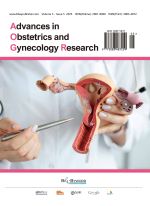Abstract
Objective: To investigate and statistically analyze the prevalence of female menopausal syndrome, while assessing their understanding of hormone replacement therapy (HRT). Methods: A total of 3,200 women who visited Huangpu District Maternal and Child Health Hospital in Guangzhou from October 2021 to June 2023 were selected as the subjects of this survey. Data on their basic information, disease symptoms, and understanding of HRT were collected through questionnaires. Results: Out of the 3,200 questionnaires distributed, the top three symptoms reported were hot flashes, insomnia, and joint pain, which occurred significantly more frequently than other symptoms (P < 0.05). Regarding HRT awareness, only 11.47% of the women were relatively familiar with it, primarily sourcing their knowledge from the internet, followed by information from family, friends, and colleagues, and then from health lectures and other promotional materials. Among the menopausal symptoms, 183 women had moderate Kupperman scores, and 116 had severe scores, accounting for 5.51% and 3.49% of the total surveyed, respectively. Conclusion: The majority of women demonstrated a significant lack of understanding regarding HRT. Enhanced education and awareness campaigns, professional medical consultations, personalized treatment plans, and the correction of past misconceptions can empower more menopausal women to make informed health choices tailored to their needs, thereby improving their quality of life. Monitoring patients’ hormone levels can provide a basis for intervention and evaluating treatment effectiveness. The relatively low proportion of women with severe symptoms is a primary reason why menopausal symptoms are often overlooked by women.
References
Zhou Y, 2023, The Relationship Between Thyroid Hormones and Alterations in Glucose and Lipid Metabolism, Endocrine Levels, and Bone Density in Women with Perimenopausal Syndrome. Chinese Journal of Maternal and Child Health, 38(23): 4714–4717.
Jia H, Feng Z, Lv N, et al., 2023, Investigating Medication Patterns and Mechanisms for Perimenopausal Syndrome through Literature Mining and Bioinformatics Analysis. New Drugs and Clinical Pharmacology, 34(7): 976–986.
Yi S, Li N, Wang X, 2023, Research on the Correlation Between Sex Hormone Levels and Negative Emotions in Women with Perimenopausal Syndrome. Practical Preventive Medicine, 30(6): 704–707.
Si M, Shi F, 2022, Analysis of the Correlation Between Ovarian Reserve Function and Thyroid Function in Women with Perimenopausal Syndrome. Clinical Medical Research, 2022(9): 1392–1394 + 1398.
Tan Y, Shao L, Zhang L, et al., 2022, The Prevalence of Menopausal Syndrome and Awareness of Hormone Replacement Therapy Among Perimenopausal Women in Zhuzhou. Guangxi Medical Journal, 44(8): 885–887 + 895.
Zhang N, Wang S, Wang K, 2023, Efficacy and Safety of Hormone Replacement Therapy in Alleviating Menopausal Syndrome in Patients Post-Cervical Squamous Cell Carcinoma Surgery and Its Impact on Serum SCC-Ag and MMP-9 Levels. Journal of Clinical and Experimental Medicine, 22(12): 1309–1312.
Chu S, Wang Z, Lin T, 2024, The Impact of Staged Health Education Combined with Repetitive Transcranial Magnetic Stimulation Based on Goal Setting on Insomnia and Anxiety Disorders in Perimenopausal Women. Chinese Maternal and Child Health, 39(6): 1130–1133.
Liang X, 2022, Clinical Efficacy of Estradiol and Dydrogesterone Combined with Psychological Therapy on Perimenopausal Syndrome and Its Influence on Psychological Mood, Sleep Quality, and Sex Hormone Levels in Patients. Chinese Maternal and Child Health, 37(4): 745–748.
Xue W, Bian Y, 2023, The Impact of Combined Health Exercises and Systemic Psychological Defense on the Physiological and Psychological Health of Women with Menopausal Dry Syndrome. Clinical Medical Research, 40(12): 2028–2030.
Yan K, Wang H, 2023, The Chain Mediation Effect of Social Support and Family Function on the Relationship Between Perimenopausal Syndrome and Subjective Well-being. Chinese Maternal and Child Health, 38(23): 4717–4720.
Zhang M, Zhang Y, Hu M, et al., 2022, A Randomized Controlled Trial on the Impact of Self-Guided Mindfulness-Based Stress Reduction Therapy on Negative Emotions in Women with Menopausal Syndrome. Journal of Tongji University (Medical Science), 43(2): 254–261.
Ren H, Sheng A, Jin L, 2023, The Effect of Mindfulness-Based Stress Reduction Training Based on the Knowledge-Attitude-Practice Model on Negative Emotions and Sex Hormone Metabolism in Women with Perimenopausal Syndrome and Neurotic Symptoms. Chinese Journal of Maternal and Child Health, 38(4): 736–739.
Cheng Q, Zhou A, Yuan X, 2022, The Effect of Different Doses of Estrogen Combined with Sequential Progesterone Therapy on Glucose and Lipid Metabolism Levels in Patients with Perimenopausal Syndrome. Chinese Journal of Maternal and Child Health, 37(24): 4741–4744.
Feng C, Shi K, Yang M, et al., 2020, Correlation Analysis of Thyroid Hormone Levels with Emotional Disorder Severity, Sex Hormone Levels, and Immune Function in Women with Menopausal Syndrome. Journal of Clinical and Experimental Medicine, 19(24): 2654–2657.
